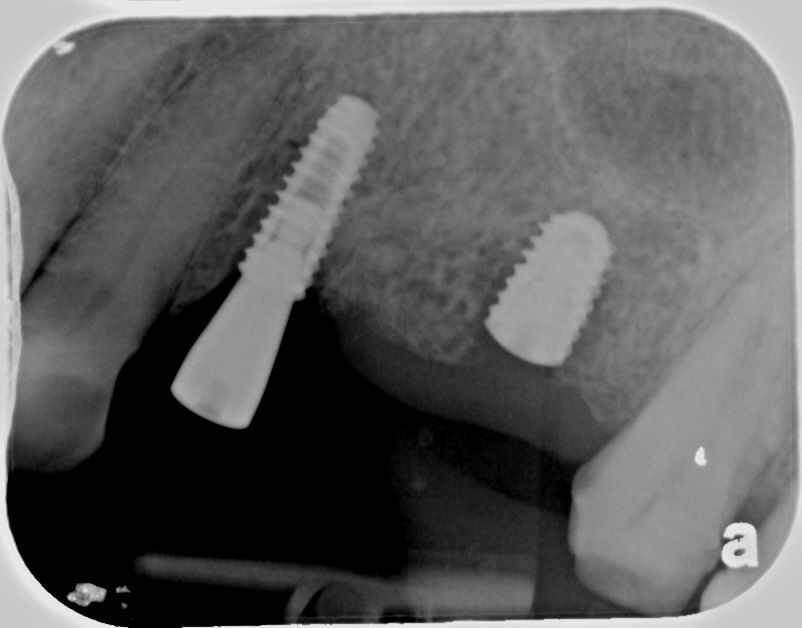Regain Your Smile and Bite Function with Dental Implants in Mount Waverley and Surrounding Suburbs
What Are Dental Implants?
Dental implants are screw-like fixtures placed in the upper or lower jaw to act as artificial tooth roots to replace missing natural teeth. They may be used to replace individual teeth, multiple adjacent teeth, or anchor a complete upper or lower arch of teeth.
Why Are Dental Implants So Good?
- Implant-supported restorations more closely mimic natural teeth in look, feel, and function than any other available prosthetic option.
- Unlike bridges, teeth adjacent to the gap are not filed down to receive crowns.
- Unlike dentures, dental implant-supported crowns are fixed in the mouth and do not have to be taken out for cleaning.
- Implants may also significantly improve conventional dentures' stability, comfort and function.
Are Dental Implants Suitable For Everyone?
Dental implants are generally an excellent treatment option for most people, however, may not be suitable in some circumstances:
Existing Periodontal Disease:
Dental implants can be susceptible to periodontal (gum) disease, just like natural teeth. Therefore, they may be unsuitable in patients with untreated existing periodontal disease.
Smoking:
Smoking impairs healing and may prevent proper integration of the implant.
Children and Teenagers:
Replacement of teeth with dental implants requires growth to be completed. As such, implants are usually not suitable for patients under the age of 18.
Medically Compromised Patients:
Some patients may not be ideal candidates for this treatment due to an issue with bone healing abilities.
Examples include patients with a compromised immune system, those with poorly controlled diabetes, those on certain medications and heavy smokers.
Severe Bone Loss:
When there has been extensive shrinkage of the jawbone following the teeth removal or due to previous periodontal bone loss, there may not be enough bone remaining to secure the implant(s).
In many cases, the natural bone may be augmented (grafted) before or during implant placement to overcome this. However, this may increase the complexity and cost of the procedure.
What is the Process?
All implant cases require careful planning, starting with a thorough examination and gathering diagnostic information such as models of the teeth, radiographs (x-rays) and sometimes photos. Other dental issues, such as untreated periodontal disease, may need to be managed before implant surgery.
It is usually performed using local anaesthetic in the dental chair. Temporary tooth/teeth may be worn during the healing phase if required for aesthetic reasons or to prevent other teeth from moving into the space(s).
Once bone and gum healing has occurred and the implant(s) have been tested for stability, the crown or bridge can be fitted.
Does it Hurt?
Some post-operative discomfort is expected. Painkillers before surgery significantly reduce post-operative pain. Where required, the dentist may also prescribe painkillers after the procedure.
What is the Cost Involved?
Following a thorough evaluation of the particular requirements of the case, an estimate of treatment fees will be provided before commencement.
How Long Does Dental Implant Treatment Take?
A typical dental implant treatment plan takes 4-6 months to complete from implant placement because a 2-3 month healing period is required for implants to integrate with the surrounding bone successfully. Suppose bone grafting is required as a separate procedure before implant surgery. In that case, an additional 6-9 months may be required to ensure that the bone graft has completely matured before implant insertion.
8-12 weeks following extraction is usually required for tissue healing before implant placement.
How Long Will My Implant-Supported Restoration Last?
The long-term success of implant-supported restorations depends on proper home care and attendance for regular check-ups. Even with diligent home care, ongoing professional maintenance is very important. This may involve minor cleaning, adjustments to the bite, and repairs to or replacement of implant components over time.

Learn more about our dental implant services and let us help you achieve a healthy and beautiful smile that lasts a lifetime.
Quick Links
Contact Information
318 Highbury Road, Mount Waverley 3149
03 9808 1109
ABN: 86220409494
Business Hours
- Mon - Thu
- -
- Friday
- -
- Saturday
- -
- Sunday
- Closed


